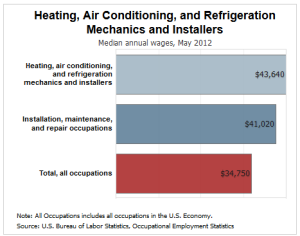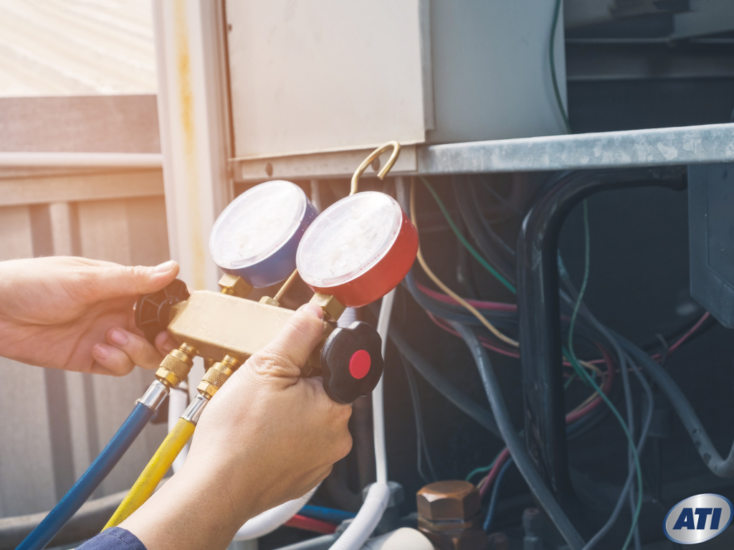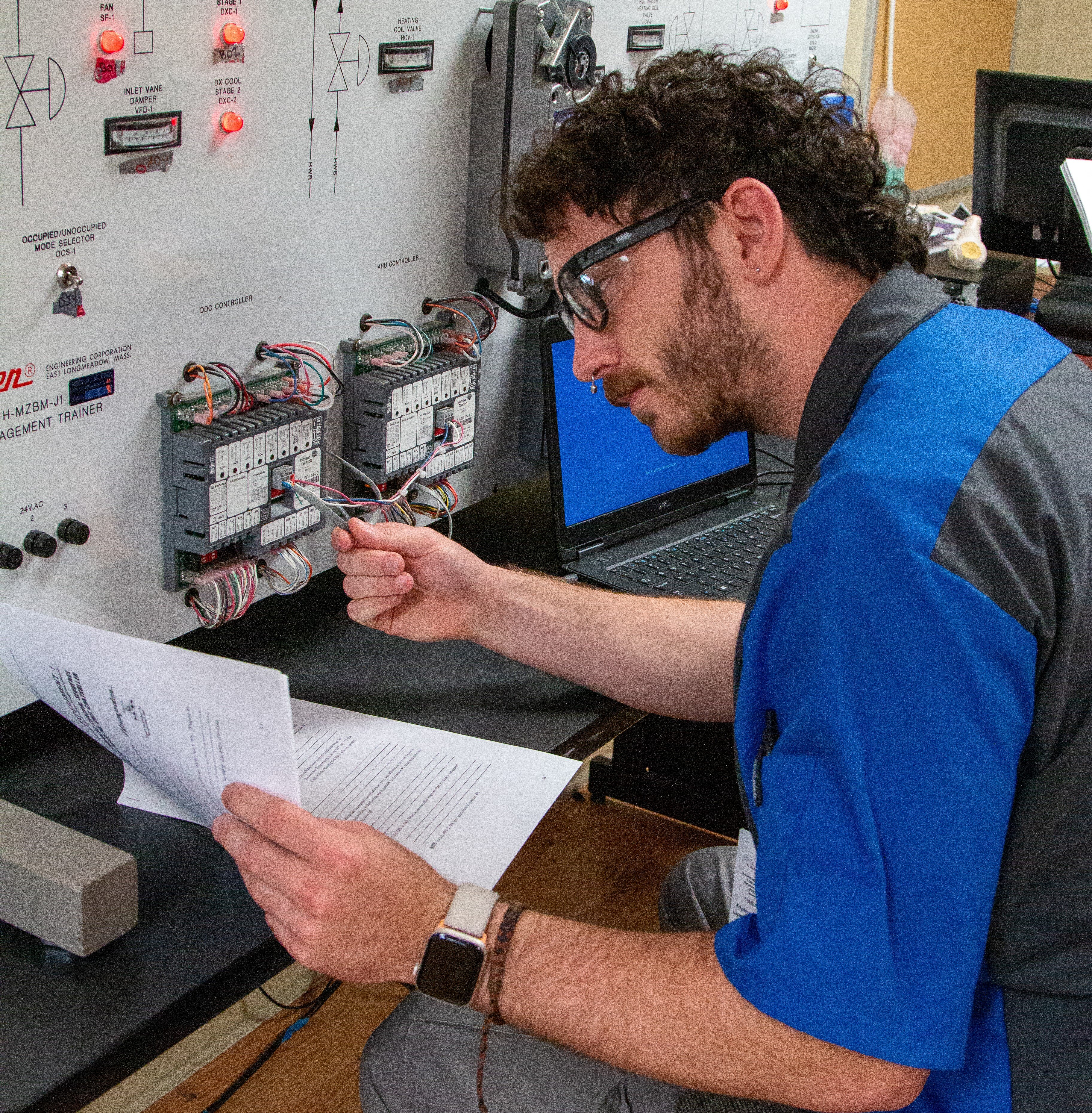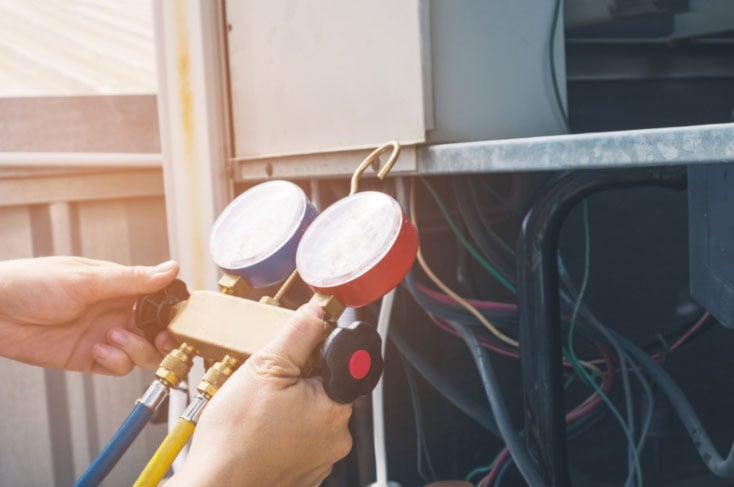Career Forecast: What’s the Job Outlook for HVAC Technicians?
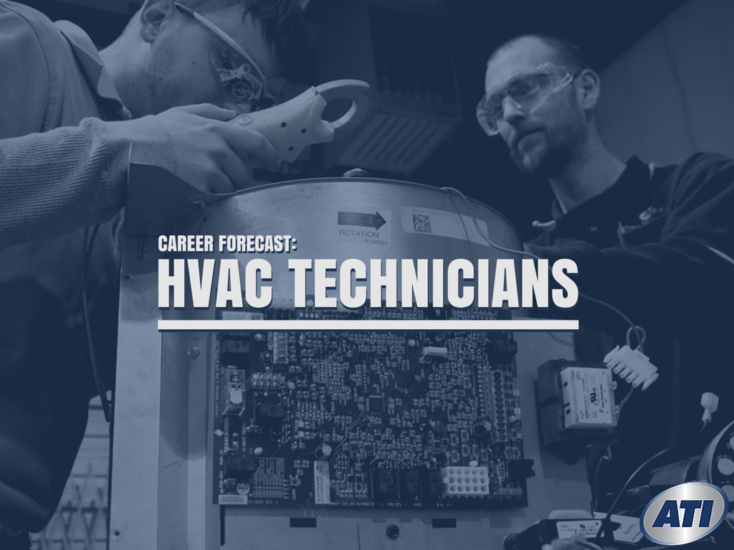
Yellow fever is the father of the air conditioning industry. In an attempt to prevent yellow fever, doctors and inventors noticed that folks in cold climates did not get the illness, so they thought to chill the air. The two—yellow fever and cold air—are unrelated, but we can thank Dr. John Gorrie, Willis Carrier (yes, that Carrier, as in Carrier air conditioners) and other early pioneers for refrigeration, air conditioning and the cold comfort we love on hot summer days. Keeping air conditioners, ice machines, furnaces, boilers, heat pumps and refrigerators running has been the job of heating, ventilation, air conditioning and refrigeration (HVACR) technicians for over 100 years.
Life Expectancy of HVAC Equipment
Well-trained HVAC technicians are called upon year-round to provide annual service of air handlers, air conditioners, heating systems, dehumidifiers and other climate control machinery. Business owners or individual homeowners cannot risk postponing annual maintenance and inspection, because customers and families expect plenty of cool comfort in spring and summer, and toasty warmth in winter.
HVAC technicians not only keep HVACR equipment humming, they also complete small repairs to save customers money and extend equipment life. The best-kept equipment, though, has a life expectancy of about 15 years.
Beyond annual service, HVACR technicians must replace worn-out freezers, coolers, and heating systems. To gauge the demand for HVAC technicians in the years ahead, think back ten to 15 years and consider: how many new residences and commercial buildings were constructed back then?
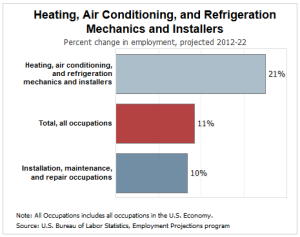 The Boom: Growth for HVAC Technicians
The Boom: Growth for HVAC Technicians
The answer is provided by the United States Bureau of Labor Statistics (BLS). Demand for qualified, well-educated HVAC technicians, the BLS predicts, will grow 21 percent through 2022. Think of it: in the next seven years, this country will need one more HVAC technician for every five technicians already working. This is nearly double the growth rate of all jobs.
The BLS notes that, in 2012, more than a quarter million HVAC technicians were busy keeping us all cool and warm. So in just the next few years, another 55,900 will be needed to keep refrigeration units chilling, freezers freezing, furnaces heating, and central air conditioners cooling.
HVAC Training
You cannot work as an HVAC technician without training and licensing. Very few service specialists learn on the job, but the vast majority of successful, fully employed HVACR technicians attend technology training schools where they can learn to handle the full range of equipment:
- 12-ton coolers—These are the monsters you see on commercial rooftops; the weight refers to their power to cool, not their actual weight
- Furnaces—Today’s furnaces can extract up to 98 percent of the energy from fuel to help save money, conserve resources and decrease greenhouse gases
- Heat Pumps
- Walk-ins—Refrigerators and freezers for restaurants, grocery stores, cruise ships, and institutions such as colleges and hospitals
- Boilers
- Central air conditioners
- Dehumidifiers and air handlers—Pulling moisture from air, then moving cooled, treated air helps people work and sleep better, and enjoy their homes and businesses
Is HVAC a Good Career Choice?
Being an HVAC technician can be an enjoyable trade because of the variety of work, the chance to meet new people, and the respect and gratitude you get from bringing cool comfort to people’s workplaces and homes.
HVAC Tech Salary
According to the Bureau of Labor Statistics, HVAC Technicians earn a median income of $43,640, with the top 10 percent of HVAC technicians earning more than $68,900 and the bottom 10 percent earning less than $27,330 annually.
Return on Your Investment
Becoming an HVAC tech could lead to many possible career paths you may not associate with a building trade:
- Aerospace—Aircraft and satellites provide specialized work in aircraft heating and cooling systems, exotic materials, and testing chambers to replicate low temperatures of high altitude and outer space
- Educational institutions—Elementary and secondary schools, colleges and universities, and job training centers all typically have large boilers and coolers needing continual maintenance and monitoring
- Health services—Hospitals, senior centers, diagnostic and test equipment, emergency medical centers
Become an HVAC Technician
Investing less than two years of your time could provide you with a lifetime of work in a fascinating trade, helping people and constantly expanding your skills. Get in touch with ATI to learn more about the HVAC Technology with Service Management (AOS) program and you, too, could be in hot demand in a cool industry.
DISCLAIMER – Advanced Technology Institute (ATI) makes no claim, warranty or guarantee as to actual employability or earning potential to current, past or future students or graduates of any educational program offered. The Advanced Technology Institute website is published for informational purposes only. Every effort is made to ensure the accuracy of information contained on the AUTO.edu domain; however, no warranty of accuracy is made. No contractual rights, either expressed or implied, are created by its content.
Gainful Employment Information
For more information about Advanced Technology Institute or any of our programs click here: http://www.auto.edu/ or http://ow.ly/VoydP.
Industry Knowledge
Welcome to the Advanced Technology Institute's Blog, your resource for industry insights and discussions on technologies shaping the future of automotive, heavy vehicle, hvac, welding, and other related career paths.
Explore how ATI's curriculum and hands-on learning opportunities can propel your career in the tech-driven world.
